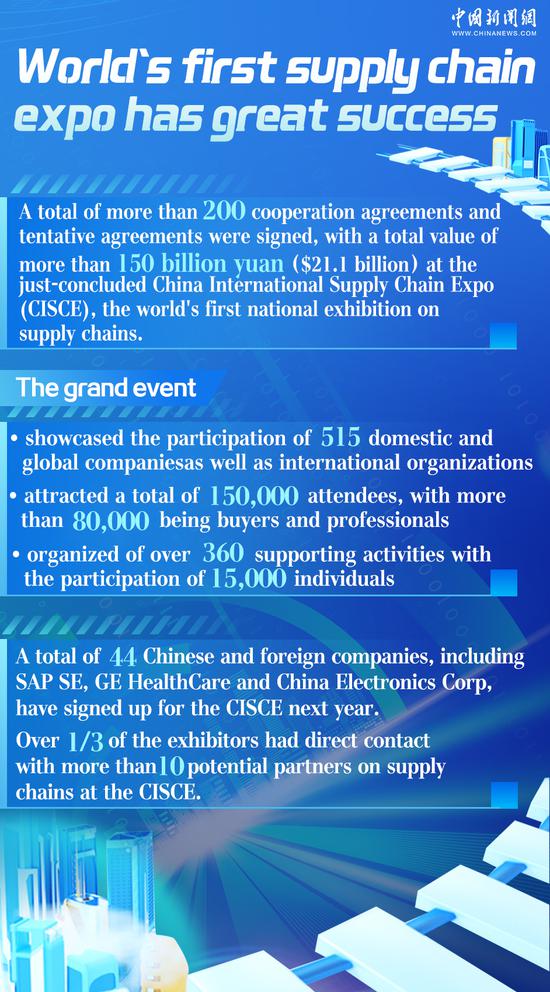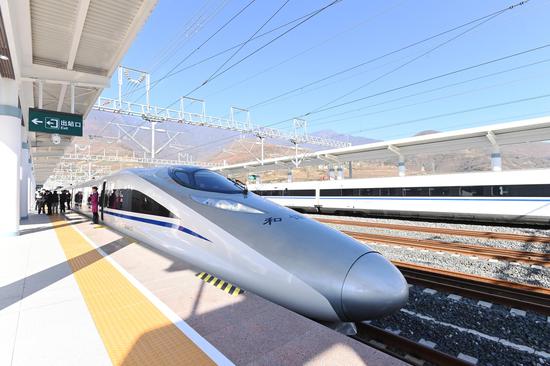Despite an economic slowdown in China, the Chinese market still provides great potential for foreign companies, and U.S. companies need to be in it to learn how to compete at Chinese speed, said American experts.
As Western media referring to a "crisis" or "collapse" of China's economy, Andy Rothman, an investment strategist at Matthews Asia, said he doesn't see it that way.
"Things are not too bad," he told a conference hosted by the Bay Area Council exploring opportunities in U.S.-China economic relations.
For example, a comparison of the shape of the Chinese company today to the pre-COVID level in 2019 reveals that the value added is 22 percent higher, consumption 23 percent higher and retail sales 14 percent higher, according to Rothman, who specializes in China's economy and U.S.-China relations.
The property market — a leading sector in the Chinese economy — reflects regulatory problems and a lack of confidence rather than an economic collapse, he said.
A study of the comparable data for existing-home sales and new-home sales in the 25 biggest cities in China shows that new-home sales in the first three quarters of this year were up 14 percent compared with the same period in 2019, according to Rothman.
"What this tells me is that there's plenty of demand for housing. There are plenty of people who can afford to buy a house, but they don't have confidence," he said.
"There's no question that demand for housing is slowing down because it's starting to become a mature industry," he continued. "This is an industry which has been slowing down for a long time and will continue to contribute much to China's economy. But that's really different than arguing that it's a crisis or collapsing."
U.S. companies that operate in China also are seeing opportunities in China despite their headquarters' hesitancy about "potential risks" to deepening investment or trade relations with China.
Sean Stein, chair of the American Chamber of Commerce in Shanghai, said when he was in Washington, he was repeatedly asked why American companies need to be in China and why that is good.
"Because if our companies are not on the ground in China, they're not seeing the incredible innovation that's taking place. They don't see what's coming down the pipeline, and they also don't have the opportunity to get tough and strong in one of the most competitive markets on the planet," Stein told a webinar examining China's economic growth.
Another point Stein said they raised to leaders in Washington is that not enough American companies are in China or active in China.
As a result, the American companies and the niche they fill in the industrial ecosystem will be replaced by the Europeans, the Japanese, or increasingly likely by Chinese companies, thus undermining the competitiveness of the U.S. companies, he said.
Instead of the "security risks" and "supply chain risks", the chamber's latest survey shows that most U.S. companies said their No. 1 risk over the next three to five years was domestic competition.
"A majority of them said that Chinese companies are better at adopting digital strategies, new technologies, and they're better at marketing and getting permits and licenses," Stein.
As a result, more and more U.S. companies are looking for strategic partners or joint venture partners in China or trying to find ways to work closely with Chinese companies, he added.
In some sectors, such as exports, U.S. companies in China "are starting to pick back up and they're starting to see some light at the end of the tunnel," said Stein. "In some other sectors, like services and investment, we're also seeing a pickup on the Chinese side."
"We don't think we'll ever get back to the years of 7-8 percent growth … but 1-3 percent growth, in an economy this large, still creates an awful lot of opportunity for foreign companies in the right niche," he said.


















































 京公网安备 11010202009201号
京公网安备 11010202009201号